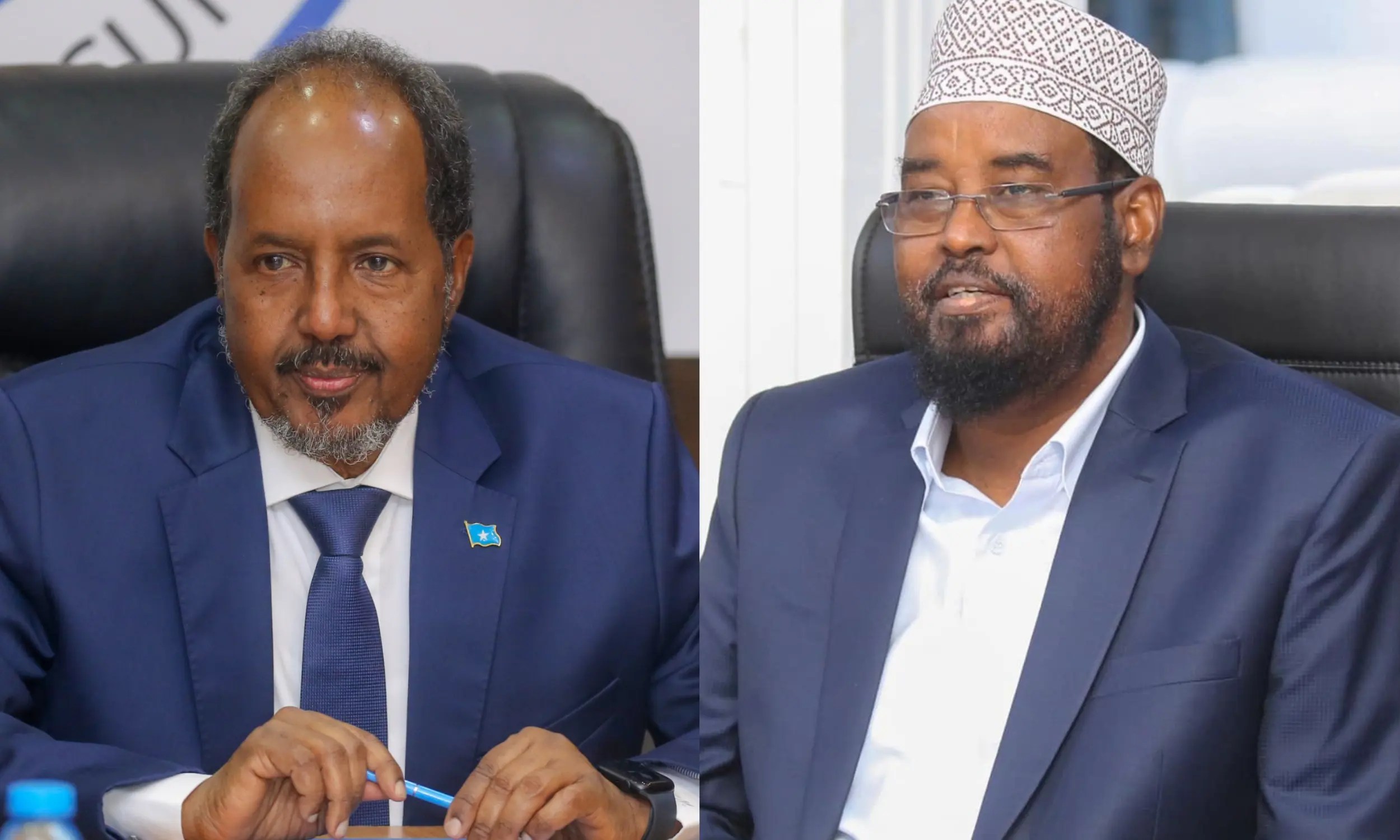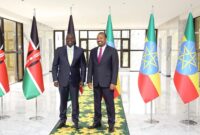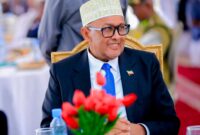KISMAYO, Somalia – Somalia’s federal government, led by President Hassan Sheikh Mohamud, has failed to enforce an air blockade on the autonomous region of Jubaland, with multiple unauthorized flights landing in the port city of Kismayo in recent days, sources reported.
The apparent breach of airspace control underscores the persistent challenges Mogadishu faces in asserting its authority over the country’s federal member states, particularly in the politically charged context of Jubaland.
The attempted air blockade, aimed at pressuring Jubaland’s leader Ahmed Madobe to hold a one-person, one-vote election not agreed upon nationally, has backfired. Since yesterday, at least two aircraft have landed in Kismayo, the interim capital of Jubaland.
One plane, reportedly chartered by Madobe, transported him to Nairobi, Kenya, for meetings with international representatives and development agencies. Nairobi is a key diplomatic and development hub in East Africa, with many global partners.
This comes after the Somali Ministry of Foreign Affairs summoned the Kenyan ambassador on Thursday to question him about the flight.
The other aircraft arrived in Kismayo on Friday afternoon, carrying Jubaland ministers to Addis Ababa, Ethiopia, and later transported elders from Addis Ababa to Doolow, a town in the Gedo region of Jubaland.
While the origin and ownership of the aircraft remain unclear, the flights demonstrate an apparent defiance of Mogadishu’s attempted restrictions.
Background: A history of tensions
The current standoff is not an isolated incident but rather the latest episode in a long history of strained relations between Somalia’s federal government and Jubaland.
The Federal Government has repeatedly employed flight bans as a tool of political pressure, notably during the previous administration of President Mohamed Abdullahi Mohamed, known as “Farmaajo.”
The Gedo region, bordering Kenya and Ethiopia, remains a particularly sensitive area. The region has been a major point of contention, with disputes over its administration contributing to the broader tensions between Mogadishu and Jubaland.
Jubaland, located in southern Somalia bordering Kenya, is one of Somalia’s five federal member states. Ahmed Madobe, a former Islamist militant who later aligned with the government, has led the region since 2013.
Jubaland is a critical strategic location that is crucial for counterterrorism efforts against al-Shabaab, the al-Qaeda-affiliated terrorist group that controls large swathes of rural southern and central Somalia. Kismayo, the region’s most populous city, is a significant economic hub and a vital port.
Mogadishu’s limited control
The Somali Federal Government, based in Mogadishu, theoretically controls Somalia’s airspace. However, the unauthorized flights highlight the practical limitations of this control, particularly in regions with strong local administrations like Jubaland.
This situation underscores Somali politics’ complex and fragmented nature, where regional autonomy often trumps central authority.
The ongoing defiance of the air blockade is likely to further inflame tensions between Mogadishu and Jubaland. This could potentially destabilize the region and complicate efforts to hold peaceful and credible elections.
The international community, which has invested heavily in Somalia’s state-building process, is watching the situation closely. The outcome of this power struggle will have significant implications for the future of Somalia’s fragile political landscape and its long-delayed democratic transition.
It remains to be seen whether President Mohamud’s administration will be able to effectively enforce its authority or will be forced to negotiate with the increasingly assertive leadership of Jubaland.
No immediate comment was available from the Federal Government of Somalia or the Jubaland administration.


